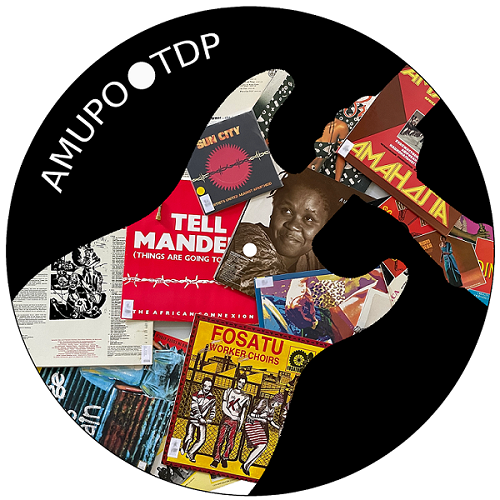African Musics and Politics: Negotiations of Violence in South African Popular Music
How does popular music negotiate the legitimacy of political violence, and how do political actors refer to violence in musical practices? South Africa’s historical struggle against the racist system of Apartheid and the country’s vibrant music scenes make it a highly suitable case through which to explore how musicians, activists, politicians and wider audiences negotiate uses of political violence in and through popular music.
The project centers on a couple of key questions:
- How are group boundaries established or reproduced in and through musics? How does music support the popularization of political messages, particularly those negotiating the (il-)legitimacy of political violence?
- How do musicians relate their compositions and musical practices to the socio-political context in Southern Africa and globally? And how do activists and incumbent politicians use popular tunes, freedom songs, singing and dancing to further their, often divergent, causes?
- How does the South African case challenge established assumptions about the relationship between high and popular culture, mostly developed on the basis of European historical examples? And how does it enhance a more adequate theorizing of gendered, racialized and class cleavages in music production and consumption that breaks with the reductionist differentiations between high and low or elite and popular cultures?
More concretely, we follow songs through time by analyzing (archival) recordings, videos, and written documents; observe protests, concerts and party-political events; and interview activists, musicians and politicians. Thereby we continuously develop an initial sample of musics, created on the basis of available academic literature and cultural production on the topic. Thus, besides iconic South African freedom songs, the sample includes examples of "Bubblegum" disco-pop, Kwaito and other musics, especially those responding to post-1994 political wrongs, such as the state's organized abandonment of large parts of the South African public or the Marikana Massacre. Unlike before 1994, these wrongs – causally tied to former colonial and Apartheid social exclusions that are exacerbated under today's neoliberal capitalist conditions – seldom engender acts of transnational (musical) solidarity today.
The project is part of the Collaborative Research Centre (CRC) "Transformations of the Popular" at the University of Siegen.
The CRC is funded by the DFG, Germany’s major self-governing organization for science and research.
Research Team
Prof. Dr. Katharina Inhetveen
Principal Investigator and Lead Researcher Work Package Violence
Chair of General Sociology I, University of Siegen
Dr. Anna Schwenck
Lead Researcher Work Package South Africa
Habilitation Candidate Sociology, University of Siegen
Rebekah Brand-Marais
Research Associate South Africa
Lukhanyo May
Research Associate South Africa
Ben Verghese
Research Associate South Africa
Sebastian Zahn
Student Assistant, University of Siegen
Cooperations
African Music Archives (AMA), Johannes Gutenberg-University Mainz
AOM (Anthropology of Music), Johannes Gutenberg-University Mainz
Bembeya Archive for the Music and Cultures of Africa / Prof. Dr. Wolfgang Bender


